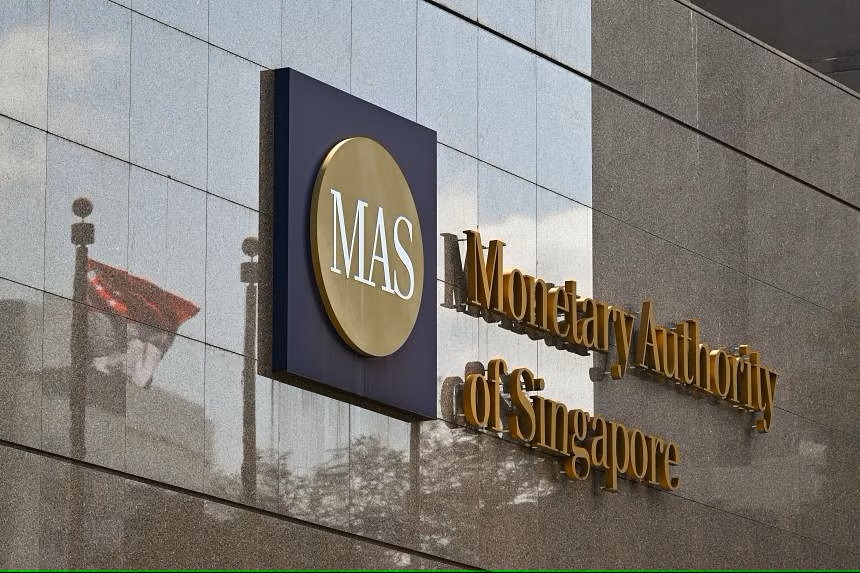
The number of single-family offices awarded tax incentives by the Monetary Authority of Singapore was 1,100 as at the end of 2022, up from 700 in 2021. ST PHOTO: LIM YAOHUI
SINGAPORE – One or more of the accused in a recent money laundering case may have been linked to single-family offices (SFOs) that had been awarded tax incentives by the Monetary Authority of Singapore (MAS), said Minister of State for Trade and Industry Alvin Tan.
Speaking in Parliament on behalf of Deputy Prime Minister and Finance Minister Lawrence Wong, Mr Tan said the financial regulator was reviewing its internal incentive administration processes for SFOs, and will tighten them where necessary.
In addition, the regulator is conducting “detailed supervisory reviews and inspections of the financial institutions with a major nexus to the case”. It will also take a critical look at how the suspects were able to access financial services in Singapore.
In August, the Singapore police arrested and charged 10 people and seized close to $1 billion in assets, including luxury properties, gold bars, designer handbags, cash, crypto assets and cars.
To date, the value of assets seized or issued with prohibition of disposal orders has swelled to more than $2.8 billion, making it one of the world’s largest money laundering cases.
Some of the suspects have been accused of presenting forged documents to banks.
Mr Tan said MAS would assess whether the banks had upheld robust anti-money laundering practices as well as practices to counter the financing of terrorism.
“We must and will do more,” said Mr Tan, adding that it was a matter of concern that financial assets worth more than $1.45 billion had been seized in relation to this case.
Mr Tan, who is also an MAS board member, noted that the SFOs were subject to anti-money laundering checks before the tax incentives were granted.
“At the point of application, no adverse information of note related to the individuals and entities had surfaced,” Mr Tan said.
A family office is a private wealth management advisory firm set up by a family to oversee the day-to-day administration and management of assets and investments with the goal of preserving wealth and transferring it to the next generation. An SFO manages assets on behalf of one family.
The number of SFOs awarded tax incentives by the MAS was 1,100 as at the end of 2022, up from 700 in 2021.
Mr Tan told Parliament that all SFOs applying for MAS’ tax incentives are required to show proof that they have opened accounts with financial institutions in Singapore.
Before onboarding them as customers, financial institutions have to conduct robust due diligence checks on them. MAS also screens the individuals and entities involved in the SFO against databases and other information sources for money laundering, terrorism financing and other adverse news, he added.
On July 31, MAS launched a public consultation to strengthen surveillance and defence against money laundering risks in the SFO sector. The consultation closed on Saturday.
MAS is proposing to bring all SFOs under anti-money laundering controls by standardising criteria for licensing exemptions.
The SFOs must also report annually on total assets managed after the end of each calendar year and maintain a business relationship with an MAS-regulated financial institution that will carry out anti-money laundering checks on them.
In the light of findings from this case, MAS will study whether measures beyond those proposed in the consultation are necessary to ensure that its approach to SFOs remains robust, said Mr Tan.
Mr Tan elaborated on MAS’ three-pronged strategy involving prevention, detection and enforcement when dealing with money laundering.
In prevention, MAS imposes stringent anti-money laundering/combating the financing of terrorism requirements on financial institutions. These requirements are in line with the standards set by the Financial Action Task Force and international best practices.
Among the requirements, financial institutions must perform due diligence checks on their customers. This includes verifying their identities and monitoring accounts to detect suspicious customer transactions or activities.
For higher-risk customers, financial institutions must perform additional checks to establish if their wealth and funds are legitimate.
Where a financial institution detects suspicious customer behaviour, it must promptly report this to the Suspicious Transaction Reporting Office and take appropriate mitigation measures, such as placing restrictions on the account or, where warranted, terminating the customer relationship.
MAS also regularly alerts financial institutions to emerging risks and crime typologies, said Mr Tan, who encouraged the financial industry to deploy data analytics to further sharpen its detection capabilities.
On this front, MAS will be introducing a digital platform known as Cosmic that will allow banks to share information on customers whose behaviour or profiles show potential financial crime concerns.
Plans are on track to roll out the platform to six banks in the second half of 2024, if not earlier, Mr Tan said.
“At this stage, there are no plans to extend Cosmic to entities beyond the financial sector, or for Cosmic information to be shared directly with financial institutions overseas or with international counterparts,” he said.
From 2020 to 2022, at least 240 people were convicted of money laundering offences, with the police seizing more than $1.2 billion worth of assets in these investigations.
In the past five years, 17 financial institutions were taken to task for breaching anti-money laundering/combating the financing of terrorism requirements.
“Source:[One or more in $2.8b money laundering case may be linked to family offices given tax incentives in S’pore] © Singapore Press Holdings Limited. Permission required for reproduction”
